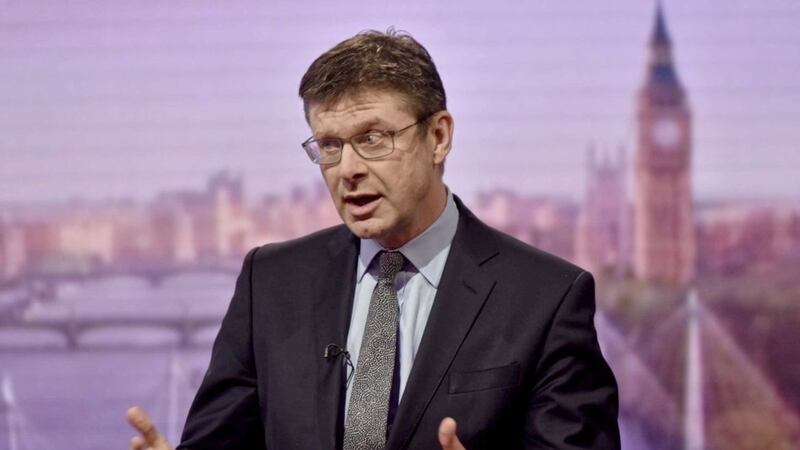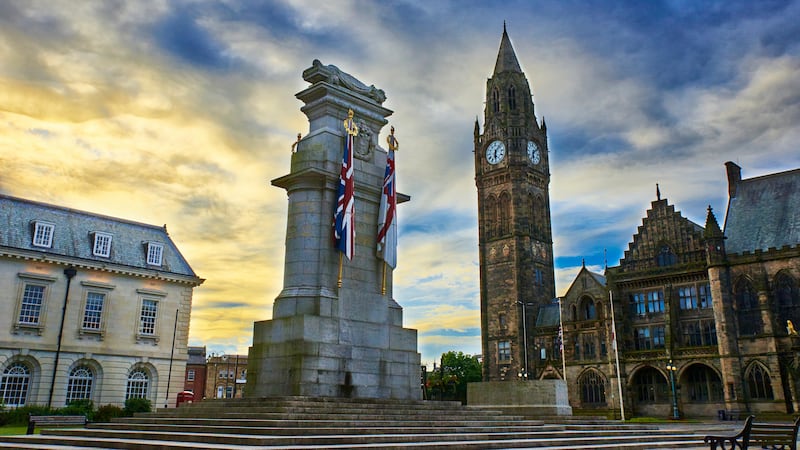THOUSANDS of jobs depend on frictionless trade with Europe, British Business Secretary Greg Clark has stressed as he said a controversial "customs partnership" plan was still on the table.
Mr Clark also opened the door to extending a transition period on customs with the EU until a new arrangement is in place as Tory wrangling continued over how to replace the current system after Brexit.
The Business Secretary was part of the Brexit "war cabinet" which last week failed to reach agreement on whether to back a hybrid customs partnership - which would see the UK collect import duties on behalf of the EU for goods arriving via British ports and airports - or the so-called "maximum facilitation" model relying on the extensive use of technology to minimise checks at the border.
Brexiteers have rejected the customs partnership, claiming it would keep the UK too closely tied to Brussels, and Mrs May's inner war cabinet is thought to have lined up six-five against it, despite the Prime Minister and Mr Clark backing the model.
He denied being close to tears as he spoke at Wednesday's meeting but admitted "I do feel very strongly" about it, before highlighting the importance of having a customs deal with "the minimum of frictions" to firms operating a just-in-time production line.
He said Toyota, which employs 3,500 people at plants in North Wales and Derbyshire, was deciding where its next plant should be in Europe.
The nature of the business meant "50% of the parts come from out of the country" every hour, day and night and the customs partnership model means being able to "import them without any checks at the border, without any paperwork".
Asked if the transition could be extended until the UK was ready, he said: "It wouldn't be a question of extending the transition. It would be, as it were, implementing as soon as you can do... there will be different parts that can be done immediately. There will be things that will take more time."
He was backed by former home secretary Amber Rudd, who said Mr Clark was right to argue the case "for a Brexit that protects existing jobs and future investment".
Business groups the British Chambers of Commerce and the CBI also welcomed Mr Clark's comments, saying it was important to maintain the status quo on frictionless trade until a new arrangement is in place.
But Brexiteers maintained their staunch opposition to the customs partnership.
Jacob Rees-Mogg, chairman of the influential European Research Group of Tory MPs, hit out at Mr Clark's suggestion jobs could be at risk, saying: "This Project Fear has been so thoroughly discredited that you would have thought it would have come to an end by now."
He told ITV's Peston on Sunday: "The customs partnership is in a sense misnamed because it means single market as well as customs union and therefore we would not in effect be leaving the European Union."
Former Tory leader Iain Duncan Smith, writing on the ConservativeHome website, said: "Despite the crucial Cabinet sub-committee on Brexit negotiations and strategy deciding last week that the scheme isn't fit for purpose, some in Downing Street are, incredibly, now briefing out that after a few tweaks it can be presented again."
A Downing Street source dismissed as "nonsense" suggestions that Mr Clark's appearance and the support from pro-EU Tories and business organisations had been orchestrated from Number 10.
Meanwhile, DUP leader Arlene Foster hit out at Brussels over the EU's stance on customs.
She told The Andrew Marr Show: "We don't believe that we have to stay in the customs union to have free flow between ourselves and the Republic of Ireland.
"We believe that there are ways to deal with this, and indeed, back in August of last year, as you know, the government put forward various proposals. We were disappointed there wasn't the engagement from the European Union at that time."
Sinn Féin MEP Martina Anderson latere claimed the DUP was ignoring the views of the people of the north on Brexit.
"The fact is that the majority of people from the north, from all backgrounds, voted to remain in the EU.
"When I meet people from all sectors from across the north it is clear they want to remain in the EU and that is what we are about and it is also what Arlene Foster's boss, Theresa May, should be focused on."








